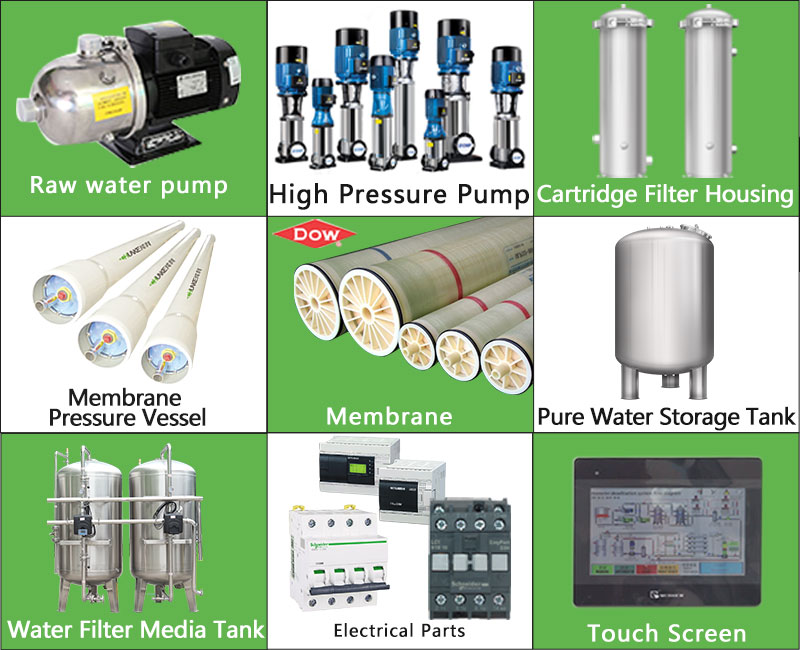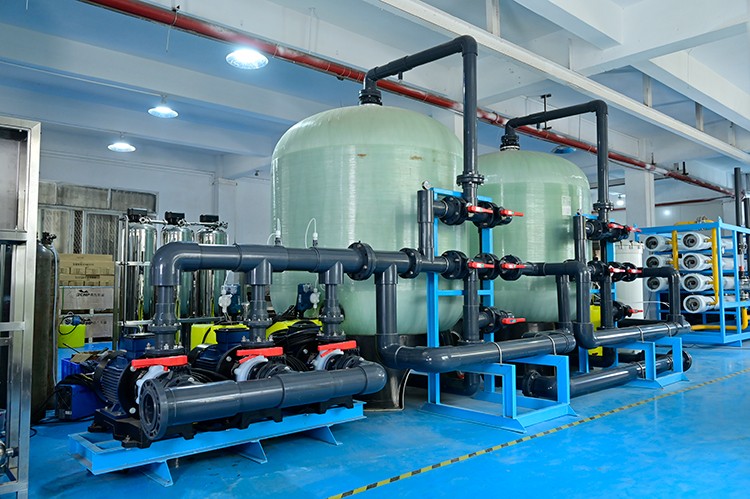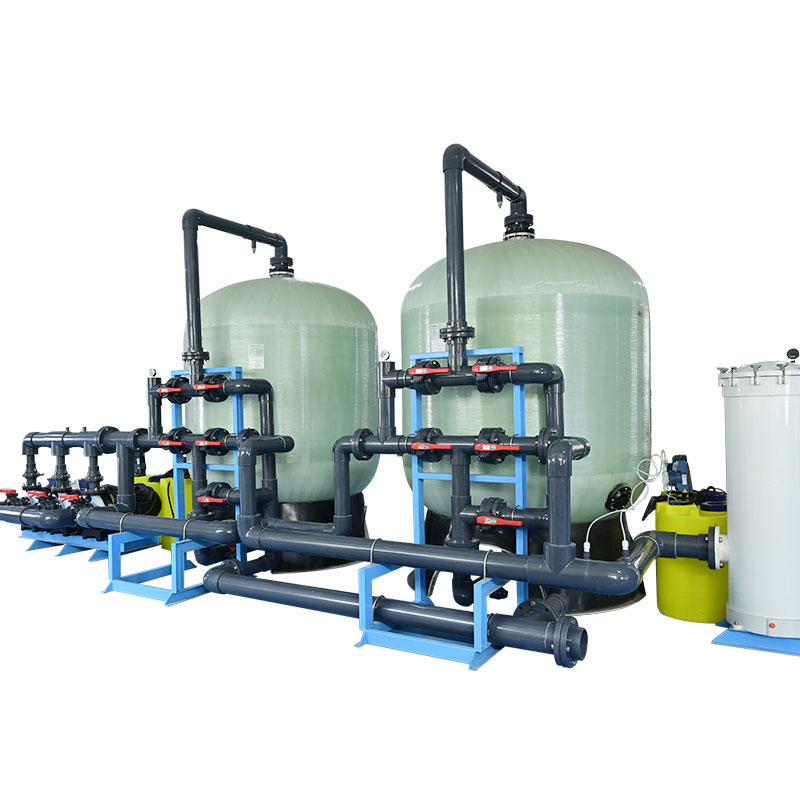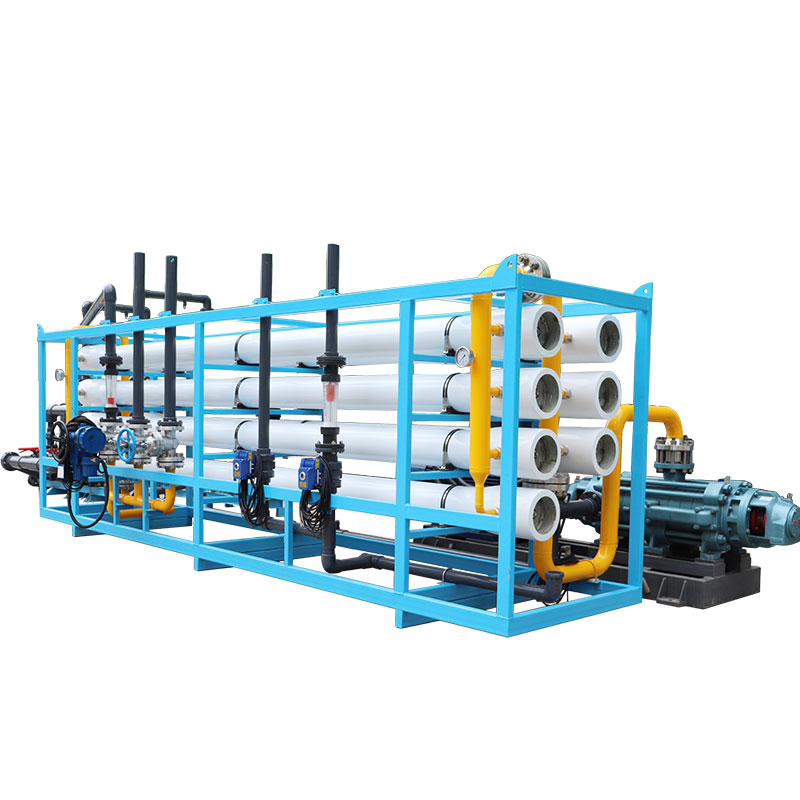What is LPH in a water filter? For example, a 4000LPH water filter
Water filters are widely used in homes, businesses, and industries to ensure that the water quality of water supply systems meets safe and healthy standards. When choosing a suitable water filter, consumers often see the term "LPH" on the product label, such as "4000 LPH water filter". So, what exactly is LPH? Why is it so important when choosing a water filter?
This article will explain the concept of LPH in water filters in detail to help you understand how to choose a water filter that suits your needs based on the LPH indicator.

What is LPH?
LPH is the abbreviation of "Liters Per Hour", which means the amount of water processed per hour and is usually used to measure the flow capacity of a water filter. In other words, the LPH value represents the amount of water that a water filter can filter per hour under standard operating conditions. For example, a water filter with a nominal "4000 LPH" means that the device can filter 4000 liters of water per hour.
The practical meaning of LPH
The value of LPH is directly related to the treatment capacity of the water filter. In situations where a large amount of water is required, such as industrial production or large commercial sites, a water filter with a high LPH value can quickly process a large amount of water to ensure a continuous and stable water supply. In household applications, although the water demand is small, it is equally important to understand the LPH value of the water filter because it affects the efficiency of water treatment and the user experience.
What impact does LPH have on the choice of water filter?
When choosing a water filter, you first need to understand your actual water needs. For household users, daily water use mainly includes drinking water, washing, bathing and other daily water use. Generally speaking, a family's daily water consumption ranges from hundreds to thousands of liters. Therefore, for household users, choosing a water filter with a lower LPH value is usually sufficient.
However, for commercial or industrial users, the water demand is often much higher. For example, restaurants, hotels, factories and other places can use tens of thousands of liters or even more water per day. In this case, it is necessary to choose a water filter with a high LPH value, otherwise it may not be able to meet the continuous water demand, resulting in production or operation being affected.
LPH and the size and cost of water filters
The higher the LPH value of a water filter, the greater the size and complexity of the device itself, which directly affects the cost of the device. A 4000 LPH water filter is usually much larger than a 1000 LPH water filter, and the internal filter element and pump capacity are also stronger, so the price is relatively high.
But this does not mean that a larger LPH value is a better choice. For occasions with low water demand, choosing a water filter with too high an LPH value not only increases the initial purchase cost of the equipment, but may also bring unnecessary energy consumption and maintenance costs. Therefore, choosing a suitable LPH value should not only meet water demand, but also consider economic efficiency.
The relationship between LPH and filtration accuracy
Normally, there is a certain balance between the LPH value of a water filter and its filtration accuracy. Generally speaking, the higher the filtration accuracy, the lower the flow capacity (LPH value) of the water filter may be. This is because high-precision filters usually use denser filter elements or filter media, which increases the resistance when water flows through, thus affecting the flow rate.
For example, a high-precision water filter for drinking water may filter out tiny particles and harmful substances in the water, but its LPH value is relatively low; while a water filter for general use may have a high LPH value but a low filtration accuracy. Therefore, when choosing a water filter, you must weigh the flow capacity and filtration accuracy to meet specific water quality requirements.

What are the key factors affecting LPH?
Water pressure is an important factor affecting the LPH value of a water filter. The flow capacity of a water filter is usually measured under specific water pressure conditions. If the water pressure is insufficient, the actual flow rate of the water filter may be lower than the nominal LPH value. For most water filters, the manufacturer will provide a recommended water pressure range to ensure that the device can operate in the best condition. If the water pressure of the water supply system is unstable or too low, it may be necessary to install a booster pump to ensure that the flow rate of the water filter reaches the designed value. Conversely, excessive water pressure may also cause damage to the water filter, so sometimes a pressure reducing valve needs to be installed to protect the equipment.
Secondly, the filter element is the core component of the water filter. Different types of filter elements will cause different degrees of resistance to water flow, thereby affecting the LPH value. Common filter element types include activated carbon filter elements, reverse osmosis membranes, mechanical filters, etc. Generally speaking, mechanical filters have a larger flow rate, while reverse osmosis membranes have a smaller flow rate. In addition, the condition of the filter element will also affect the LPH value. As the use time increases, the filter element will gradually be blocked by impurities in the water, resulting in a decrease in flow. Therefore, regular replacement or cleaning of the filter element is an important measure to maintain the stability of the flow of the water filter.
The design and internal configuration of the water filter will also affect the LPH value. For example, some high-end water filters use a multi-stage filtration design, which can effectively improve water quality but may reduce flow. Therefore, manufacturers usually weigh the filtration effect and flow capacity when designing water filters to meet the needs of different application scenarios. In addition, environmental factors such as water temperature and water quality will also affect the LPH value of the water filter. Generally speaking, the higher the water temperature, the lower the viscosity of the water, and the flow rate will increase relatively; conversely, the flow rate of low-temperature water will decrease. In addition, when the water quality is poor, the filter element will be blocked faster and the flow rate will decrease accordingly.

What are the actual application scenarios of LPH?
For home users, the typical daily water demand is not high, so it is usually not necessary to choose a water filter with an excessively large LPH value. A water filter with a nominal value of 500 to 1000 LPH is sufficient to meet the needs of most families. The selection of a water filter for home use should focus more on filtration accuracy and water quality improvement effect, rather than simply pursuing a high LPH value.
Commercial places such as restaurants, hotels, office buildings, etc. have high requirements for water quality and water quantity. Such places usually need to install multiple water filters or choose equipment with a higher LPH value to ensure that sufficient processing capacity can be provided during peak water use periods. For example, a 4000 LPH water filter may be suitable for a medium-sized restaurant or office building.
Industrial water often involves a large number of production and processing processes, so the LPH value of the water filter is higher. A standard industrial water filter may have an LPH value of tens of thousands or even hundreds of thousands to meet the production needs of all-weather and large flow. In addition, industrial water filters are usually required to have a high degree of durability and automation to reduce maintenance and operating costs.

How to choose a suitable LPH value?
To choose the right LPH value, you first need to be clear about your water needs. Calculate the daily water consumption and take into account possible peak demand. For example, home users can estimate the approximate water consumption based on their daily water habits, such as laundry, dishwashing, showering, etc.; while commercial or industrial users should make detailed calculations based on the size of the site and the peak water consumption period.
Secondly, the water quality directly affects the choice of water filter. If the well water or tap water contains a lot of impurities or pollutants, it is recommended to choose a water filter with a higher filtration accuracy, but it should also be noted that the LPH value of such water filters is usually lower. In the case of good water quality, a water filter with a higher LPH value can be selected to ensure sufficient water supply.
Although a water filter with a high LPH value can provide greater processing capacity, its initial purchase cost and subsequent maintenance cost will also increase accordingly. Users should choose the right equipment based on their budget and balance between use effect and cost-effectiveness. In addition, considering the replacement frequency and cost of the filter element is also an important factor when choosing a water filter.




